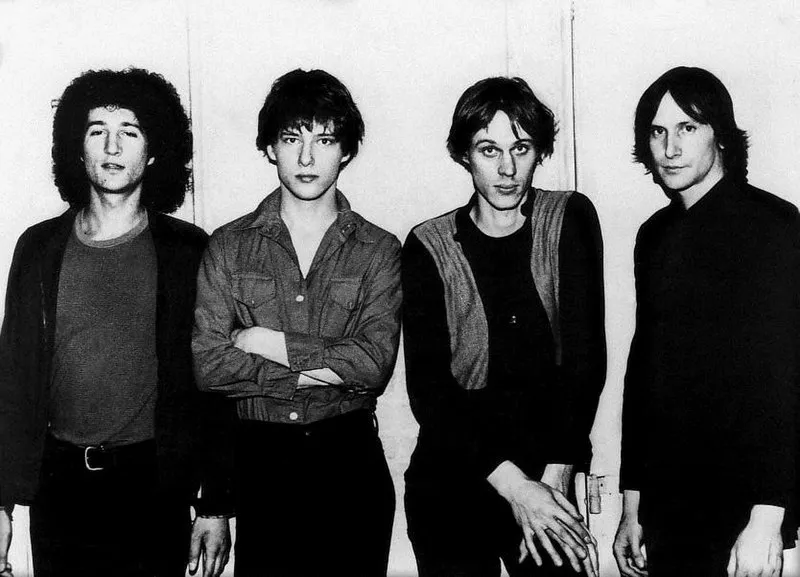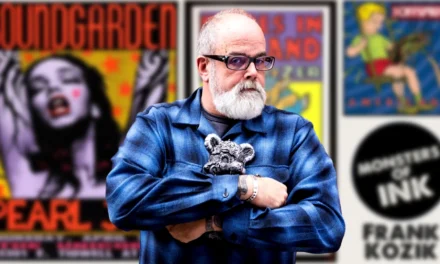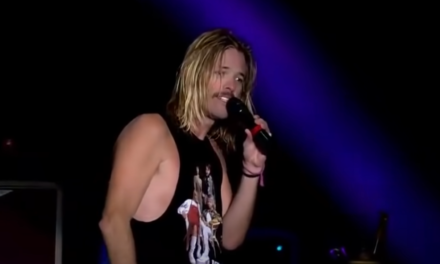Tom Verlaine, a pioneering guitarist and founding member of Television, one of the most relevant groups in New York’s CBGB punk scene in the late 1970s, died on January 28th, 2023 at the age of 73. After a brief illness, Mr. Verlaine passed away in New York City, according to Cara Hutchison, a spokeswoman for the musician.
Verlaine, a guitarist who helped define an era, was most remembered for his work as the vocalist of the short-lived band Television, which disbanded after two albums that were met with very modest financial success. After leaving Television, Mr. Verlaine started performing as a solo artist. He worked with many artists including David Bowie and Patti Smith.
He was an experimental, exploratory guitarist with a spiky, angular sound. In 2006, Verlaine’s final studio album was released.
The Early Days of Tom Verlaine and Television
Born Thomas Miller in Wilmington, Delaware in 1949, Verlaine grew up in a musical family and began playing guitar as a teenager. He later attended the Lycée Français de New York, where he developed an interest in French literature and poetry.
In the early 1970s, Verlaine moved to New York City and became involved in the city’s burgeoning punk rock scene. He formed Television in 1973 with Richard Lloyd, Billy Ficca, and Richard Hell.
Television formed in New York City in 1973. The band’s original lineup consisted of Tom Verlaine on vocals and guitar, Richard Lloyd on guitar, Billy Ficca on drums, and Richard Hell on bass.
Television quickly made a name for themselves on the New York City club circuit and were at the forefront of the city’s burgeoning punk rock scene.
Television had grown to be an all-consuming endeavor for its members by the end of 1973, and they trained together for hours every day. Additionally, the group discovered a new home where they could perform live. To put it mildly, CBGBs, hidden behind a rundown home in the Bowery, was a rough hole, but it had a stage.
The group planned a stint there, and in March 1974 they made their performance debut. The city’s burgeoning culture of musical misfits had a place to call home all of a sudden. Ramones opened the way for punk rock. Listeners got a taste of art-school flair from Talking Heads. Blondie had the necessary rock and roll sex appeal in spades, due to their stunning lead singer Debbie Harry. Television had a killer guitar, raw vocals and a complex composition that made them unique and special among the bands of the time.
Tom Verlaine’s Television at CBGB’s, NYC — December 27th. 1976
The importance of Marquee Moon
One of the finest albums of the 1970s is generally agreed upon to be the band’s first release in 1977 “Marquee Moon.”
At the time of its debut, the guitar rock masterwork carried rock & roll into unnamed stadiums by fusing artistic precision with the danger and vigor of New York’s then-emerging punk culture. The album featured the band’s signature jagged guitar work and literate lyrics, which were provided mostly by Verlaine.
Today, you can label this album however you want — underground, indie, etc. The influence of the record is obvious. Marquee Moon left a footprint on future guitar misfits, many of whom — including Pavement, Sonic Youth, and Built to Spill — would become well-known during the guitar rock period of the 1990s.
A good 5-Minute review of Marquee Moon can be found at Pitchfork’s Youtube Channel:
The title tune, “Marquee Moon,” which is a masterpiece in jangly guitar technique and smart lyrics, kicks off the album. The album’s other tracks are marked by the band’s distinctive interlocking guitar work and deep lyrics, and the song serves as its launching point. The music is raw and contemplative, and Verlaine’s unusual voice gives it an added dimension.
“See No Evil,” “Venus,” and “Friction,” which all stand out among the band’s best songs, are some of the other notable tracks. The album as a whole is a good look at the band’s creative vision and ingenuity, and the compositions are intricate and deep.
The musical complexity on “Marquee Moon” distinguishes it from other punk rock albums of the era. It is a meticulously created piece of art that highlights the band’s compositional prowess rather than simply being a series of quick, loud, and aggressive songs. The album’s innovative fusion of experimental music with punk rock intensity made it a classic must-have rock album that remains as such nowadays.
The band members of Television took a break after the publication of their second album, “Adventure,” in 1978 and concentrated on personal endeavors. While Lloyd and Ficca started the band Rocket from the Tombs, Verlaine made a number of solo recordings.
The band briefly came back together in the early 1980s to do a few live shows, but by 1983 they had broken up once more. The band reformed in 1991, and with the publication of their new album “Television” in 1992, they started touring once again.
Even though they haven’t put out any new music since 1992, the band maintained their position as a cult favorite and a significant player in the Punk-New Wave movement. Television’s influence on the genre is indisputable, and it can still be heard in the music of many bands today.
Some videos to watch on Youtube that are relevant to the band and the genre are the following:
10-Minute song version of “Marquee Moon”
On subsequent pressings of the CD, the song Marquee Moon is accessible in its entirety for ten minutes, thirty-eight seconds, with its original ending
1974’s Television’s Rare Rehearsal Session
In 1974, the band’s Richard Hell lineup practiced in manager Terry Ork’s loft.
Early & rare “Marquee Moon” 1974’s demo tape
Richard Williams/Brian Eno demo for Marquee Moon taped in 1974 for Island Records.
Throughout his career, Verlaine’s guitar playing style was widely recognized as one of the most original in the punk-new wave scene. His literate and poetic lyrics also set him apart from his contemporaries.
In addition to his music career, Verlaine was also involved in various other artistic endeavors, including painting and photography. He is considered a cult figure and an important figure of the Punk-New Wave scene, his influence as a solo-artist on the genre and as a guitarist will also remain for decades.
Rest in power Tom Verlaine!



